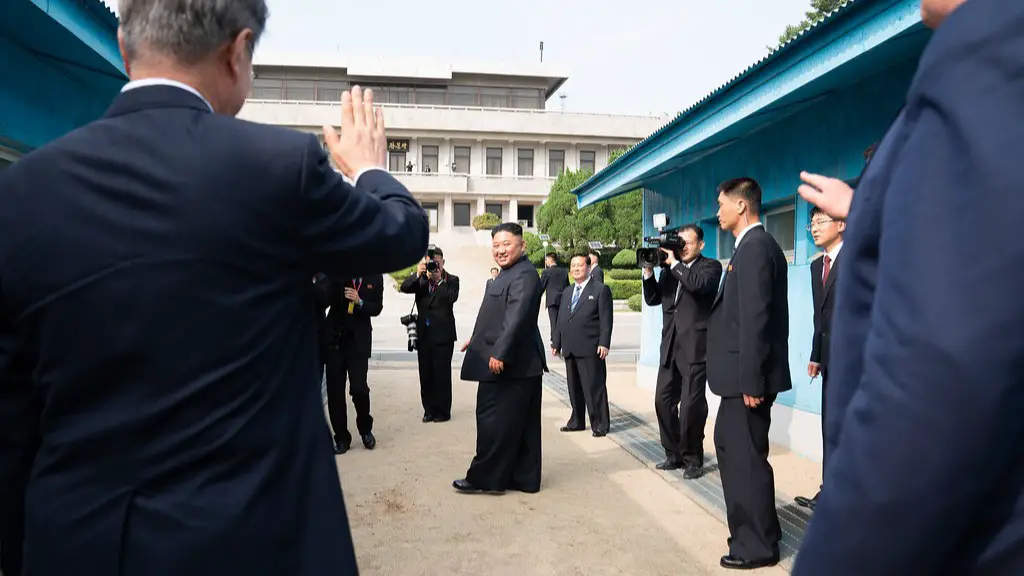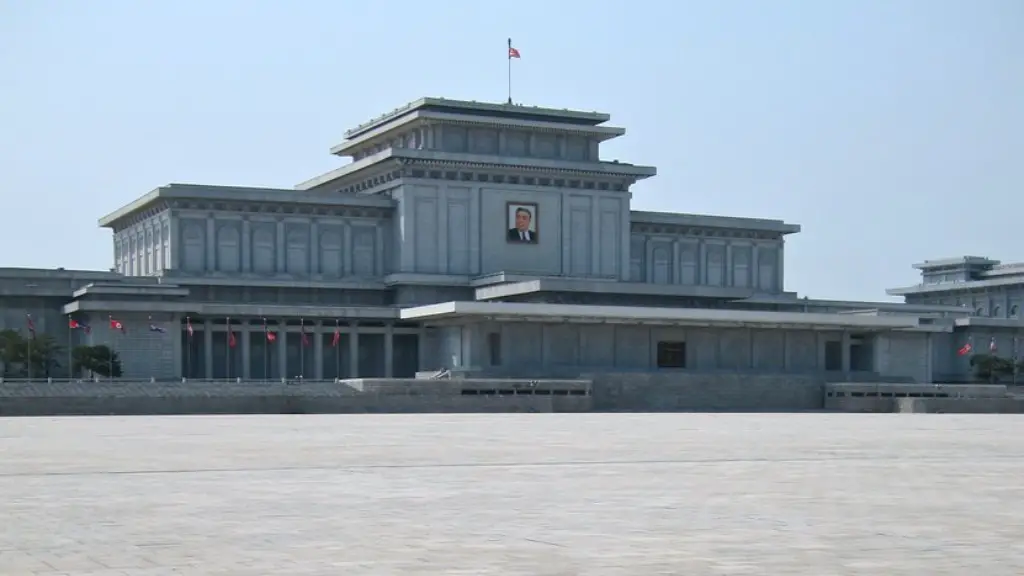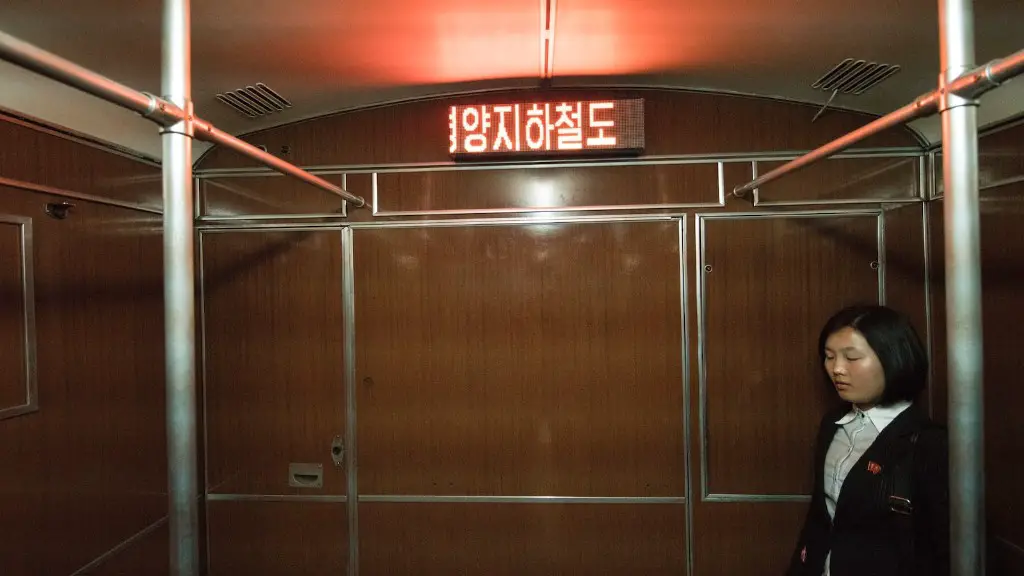The kidnapping of Japanese citizens by North Korea is a deeply disturbing issue for the people of Japan, many of whom have yet to receive closure regarding the status of their loved ones. Although the reasons for the abductions by North Korea remain murky, some experts believe political intentions may have played a role. In this article, we’ll take a closer look at why North Korea may have chosen to pursue such a strategy, and examine the actions of the North Korean government in the context of the broader region.
Since the 1950s, the North Korean government has held a complex relationship with Japan, largely due to the oppressive nature of the former’s rule within their own borders. Many Japanese nationals have been taken and detained while in North Korean waters, while Japanese citizens travelling to and from both countries have also been targeted. In the late 1970s, reports began to surface of Japanese citizens being abducted into North Korea.
In 2002, the Japanese government acknowledged the abduction of 17 Japanese citizens by North Korea and demanded the return of the individuals who had been taken. While six of the individuals were returned to Japan in 2002, the remaining 11 are still unaccounted for. It is believed that the North Korean government wanted to use the hostages as bargaining chips in their diplomatic negotiations with Japan, as well as to gain intelligence on Japan.
Other potential motives for North Korea’s actions include seeking revenge for past actions by Japan. During the Second World War, Japan forcibly annexed Korea and established a totalitarian regime, in which human rights abuses were a regular occurrence. This period saw the relocation of more than 100,000 Koreans to Japan as part of Japan’s effort to solidify its control over Korea.
Further fuel to the argument that North Korea’s intention was to take hostages in retaliation for Japan’s wartime actions can be found in the case of former abductee Yasushi Chimura. Chimura was taken by North Koreans in 1978, and when he returned to Japan in 2002, he reported that his captors had referenced Japan’s wartime history of occupation and human rights abuses throughout his captivity.
The abduction of Japanese nationals by North Korea has been condemned on numerous occasions by the international community. The United Nations has passed several resolutions calling for an end to such abductions. Furthermore, the Japanese government has continued to press the North Korean government for the release of the remaining 11 abductees.
U.S. Perspective
The United States has publicly expressed its concern over the abduction of any one country’s citizens by another. In 2014, U.S. President Barack Obama urged North Korea to “stop its provocative actions” and reiterated America’s stance against such activities. Since then, the U.S. government has actively encouraged North Korea to cooperate with Japan and investigate the abductions of its citizens.
In 2017, the U.S. government imposed additional economic sanctions on North Korea, which it claimed were in response to the country’s unethical activities, including the kidnapping of Japanese citizens and its pursuit of nuclear weapons. These sanctions were aimed at limiting the economy of North Korea and punishing the regime for its continued human rights abuses.
Japan’s Response
The Japanese government has also taken a hard-line stance against the North Korean abductions. In 2014, the Japanese government adopted a tougher stance against North Korea, with Tokyo demanding that Pyongyang investigate the abductions and provide details of the individuals who were taken.
The government of Japan has continued to maintain diplomatic dialogue with North Korea and engage in negotiations with the North Korean leadership over the issue of the abductions. In 2015, North Korea agreed to launch an investigation into the abductions and promised to provide Japan with a report on the matter by the end of the year. However, the report, which was released in 2016, did not provide any substantive information on the whereabouts of the remaining 11 abducted individuals.
For the families of the abducted individuals, the lack of closure has been especially difficult to bear. Many of these families have organized protests and pushed for further action from the government to investigate the abductions and bring their loved ones home.
The World’s Perspective
The international community has also demonstrated its disapproval over North Korea’s behavior. Several UN Security Council resolutions have been passed, calling for an end to the abductions and for North Korea to cooperate with the Japanese government in resolving the issue. In addition, many countries have imposed sanctions on North Korea in response to the kidnappings.
The abduction of Japanese citizens by North Korea is an issue that has received significant international attention. However, despite years of diplomatic pressure, the individuals responsible for the abductions remain at large, and the remaining 11 abducted Japanese citizens remain unaccounted for. The tragic consequences of the abductions have generated immense suffering among the families of the abducted individuals and will leave a lasting legacy of trauma and tragedy.
International Negotiations
In recent years, Japan and North Korea have engaged in several rounds of international negotiations over the abduction issue. In the absence of direct dialogue between the two countries, international mediators have been used to facilitate negotiations. In 2014, U.S. Secretary of State John Kerry met with the North Korean leadership to discuss the issue, and a joint statement was issued that was seen by some observers as a sign of progress.
However, the North Korean government has since refused to cooperate with Japan, and progress on the issue has been slow. In 2017, North Korea called for Japan to normalize diplomatic relations without addressing the abduction issue, a move that was criticized by many in the international community.
The issue of North Korea’s abduction of Japanese citizens remains a serious problem that has yet to be adequately addressed. It has been decades since the abductions occurred, and the families of the abducted individuals are still searching for closure.
Progress and Hope
In recent years, there have been some signs of progress in negotiations between Japan and North Korea. In 2018, the two countries held a meeting in China in which the two sides discussed the abduction issue. The meeting resulted in a breakthrough agreement in which North Korea agreed to launch a new investigation into the abductions.
Despite this, there is still no guarantee that the individuals who were taken will be returned to their families. The secrecy and opacity of the North Korean regime could mean that the abductees will remain unaccounted for. Still, many families have held out hope that the North Korean government’s investigation will lead to a breakthrough, and that their loved ones will one day be returned to them.
International Community
In the face of North Korea’s intransigence, many nations have rallied to support Japan in its efforts to secure the release of its citizens from North Korea. Over the years, the international community has testified to its support of Japan’s efforts and encouraged the North Korean regime to cooperate. In 2018, the United Nations General Assembly passed a resolution that condemned the abduction of Japanese citizens by North Korea.
In addition, numerous countries have taken strong stances against North Korea, with the U.S., the U.K., and the European Union imposing economic sanctions in an effort to pressure the North Korean regime to end its human rights abuses. The international community has also urged North Korea to appear before the International Criminal Court to answer for its actions.
The abduction of Japanese citizens by North Korea has not only violated the human rights of the individuals taken, but has also served as a reminder of North Korea’s disregard for international norms and standards. The international community must continue to take a unified stance against North Korea in order to bring closure to the families of the kidnapped individuals.
Looking Ahead
Although the issue of North Korea’s abduction of Japanese citizens remains unresolved, there may be hope for the families of the victims. In 2018, North Korea agreed to launch a new investigation into the abductions, and Japan has continued to press the North Korean government for answers. However, until concrete progress is made, the fate of the abducted individuals remains unknown.
Nevertheless, it is essential that Japan and the international community continue to urge North Korea to cooperate and provide details on the whereabouts of the abductees. The pain and suffering of the abducted individuals’ families can only be alleviated when the truth is revealed, and all of those responsible for the abductions are held accountable.
The abduction of Japanese citizens by North Korea is an issue that has been met with widespread international condemnation. The North Korean regime must recognize the immense suffering it has caused and take concrete steps to bring closure to the families of the abducted individuals. Until the fate of the missing individuals is revealed, Japan and the international community must remain vigilant in seeking justice for the victims.





